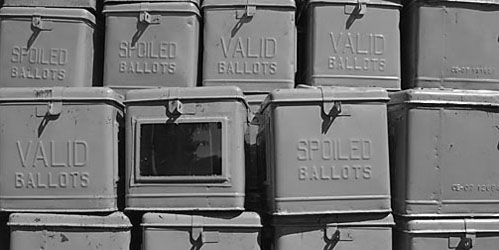2014, Labour’s year of…Supporting the EU referendum
Whatever is the Labour Party doing dithering about whether or not to support an in/out referendum on Europe? Unusually electoral tactics and principle are aligned. 80 per cent of the electorate want a referendum and constitutionally they have never given...
Whatever is the Labour Party doing dithering about whether or not to support an in/out referendum on Europe? Unusually electoral tactics and principle are aligned. 80 per cent of the electorate want a referendum and constitutionally they have never given their authority to the huge transfer of legislative power from Parliament to the European Union.
Extraordinarily, the reason often given by Labour’s spokespeople to deny the electorate the right to decide is simply that they might get the decision wrong and vote to leave. This is profoundly undemocratic and if applied to general elections would lead to their abolition, for history records the many mistakes of the electorate.
What seems to lie behind this perverse position is a nostalgic view of the European Union. In this view the EU is the embodiment of the social democratic ideals of peace, prosperity and democracy as envisaged by its founding fathers.
Unfortunately the reality is different. The Euro has created unprecedented levels of unemployment and perpetual recession, guaranteed by the deflationary policies forced on the Club Med countries, by the European Central Bank, the IMF and Germany. Unelected bankers, financiers and European Commissioners have more control over the majority of Eurozone countries that their own parliaments.
Economic failure and the inability of these national electorates to change their governments, and policies, have ineluctably led to the rise of parties of the far right.
It is not just those countries hobbled by the Euro which have a democratic deficit. More than 50 per cent of our laws are now minted in Europe. Agriculture and fisheries are almost completely controlled by the EU and Eurocreep is usurping the right to determine our criminal justice system.
The cabinet and shadow cabinet are at one in believing that Europe should be reformed without actually stating which reforms are favoured, let alone how it would be achieved.
The transfer of power to Brussels is enshrined in treaties which require the unanimous agreement of 28 countries before any amendment can take place. This simply will not happen.
This is not just a theoretical problem. Many of Labour’s most cherished and popular policies will not be allowed. Freezing energy prices will inevitably lead to energy companies appealing to the European Commission. We can also forget any ambitious plans to renationalise Royal Mail or the railways. EU directives will strangle them at birth.
Labour’s plans to force UK companies to create new apprenticeships for British citizens equivalent to the number of people employed from outside the EU is illegal under single market rules.
Rulings by the European Courts of Justice which allow firms to transport workers from their own countries while maintaining existing wage rates will destroy our minimum wage legislation.
The institutions of the European Union have ensured that the interest of multinational companies take precedence over those of trade unions and democratically determined national laws.
It was thought impossible in the 1980s for Labour to win an election with anti EU policies. The pragmatic decision was taken to reverse the policies and to become more supportive of the EU. Europe is now so unpopular that the opposite applies.
The democratic left has believed since the Enlightenment that society can be improved by the ballot box. The EU has removed that option. It is time for the Labour Party to reassert its principles and oppose a body where bureaucrats are superior to democratically elected national governments.
People’s cynicism and alienation is bound to increase if the essence of the party’s manifesto is ‘vote Labour even though if elected we will not have the power to improve our country.’
The essence of democracy has always been that you can throw out the rascals who make our laws. If you can’t do that you don’t have a democracy. This, more than anything else, is surely worth fighting for.
